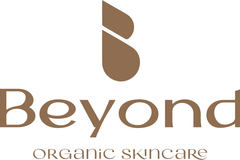The Skinification of Hair
0 comments
In recent years, a new term has emerged in the beauty industry: "skinification of hair." This concept refers to treating our hair with the same care and attention as we do our skin. Just as our skin requires nourishment and protection, our hair also deserves similar treatment. Below, we’ll explore what the skinification of hair means, how it can affect our hair health, and effective ways to combat its negative effects.
Understanding the Skinification of Hair:
The skinification of hair involves adopting a holistic approach to hair care that focuses on nourishment, protection, and overall hair health. It emphasises the idea that our hair, like our skin, is a living part of our body that requires proper care and attention.
Effects of Skinification on Hair:
1. Environmental Damage: Just as our skin is exposed to environmental aggressors, our hair faces similar challenges. Factors like pollution, UV rays, and harsh weather conditions can damage the hair cuticle, leading to dryness, frizz, and breakage.
2. Product Buildup: Regular use of styling products, dry shampoos, and chemical treatments
can lead to product buildup on the scalp and hair strands. This buildup can suffocate the hair follicles, hinder proper oxygen and nutrient absorption, and contribute to a dull and lacklustre appearance.
3. Heat Styling Damage: Excessive use of heat styling tools, such as flat irons and curling wands, can weaken the hair shaft and lead to brittleness, split ends, and loss of moisture. Heat damage is a significant concern in the skinification of hair because it mimics the impact of excessive sun exposure on our skin.
Combatting the Skinification of Hair:
- Nourish and Hydrate: Just like skincare, hair care begins with nourishment and hydration. Use moisturising and nutrient-rich hair products, such as hydrating shampoos, conditioners, and hair masks. Look for ingredients like argan oil, shea butter, and coconut oil, which can restore moisture and strengthen the hair. Our Shine & Strength shampoo and conditioner both contain aloe vera juice, coconut and sea buckthorn to hydrate and add shine. They’re suitable for all hair types and can even help with dandruff and scalp conditions.
- Protect from Environmental Factors: Shield your hair from environmental damage by wearing a hat or using protective hair sprays with UV filters. Rinse your hair with cool water after swimming in chlorinated pools or saltwater to prevent damage and dryness.
- Gentle Cleansing: Avoid excessive use of harsh shampoos and opt for sulphate-free or mild cleansers. Over washing can strip away natural oils and disrupt the scalp's balance, leading to dryness and irritation. Aim to wash your hair every 2-3 days or as needed.
- Limit Heat Styling: Minimise the use of heat styling tools to reduce damage. If you must use them, apply a heat protectant spray to create a barrier between the hair and the heat. Opt for lower heat settings and limit the frequency of styling sessions.
- Regular Scalp Care: Treat your scalp with care by exfoliating gently to remove product buildup and dead skin cells. Use a scalp scrub or a clarifying shampoo once a month to maintain a healthy scalp environment.
Healthy hair is Beautiful hair!


0 comments